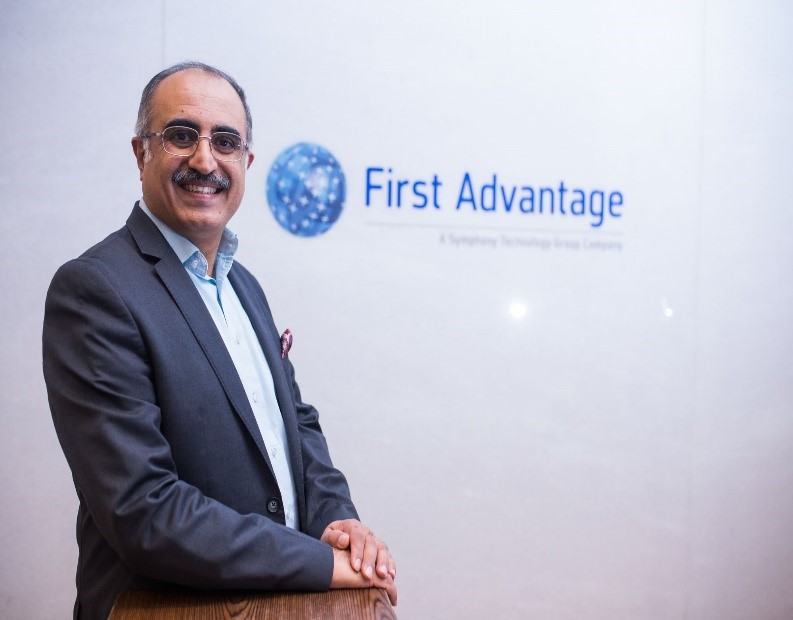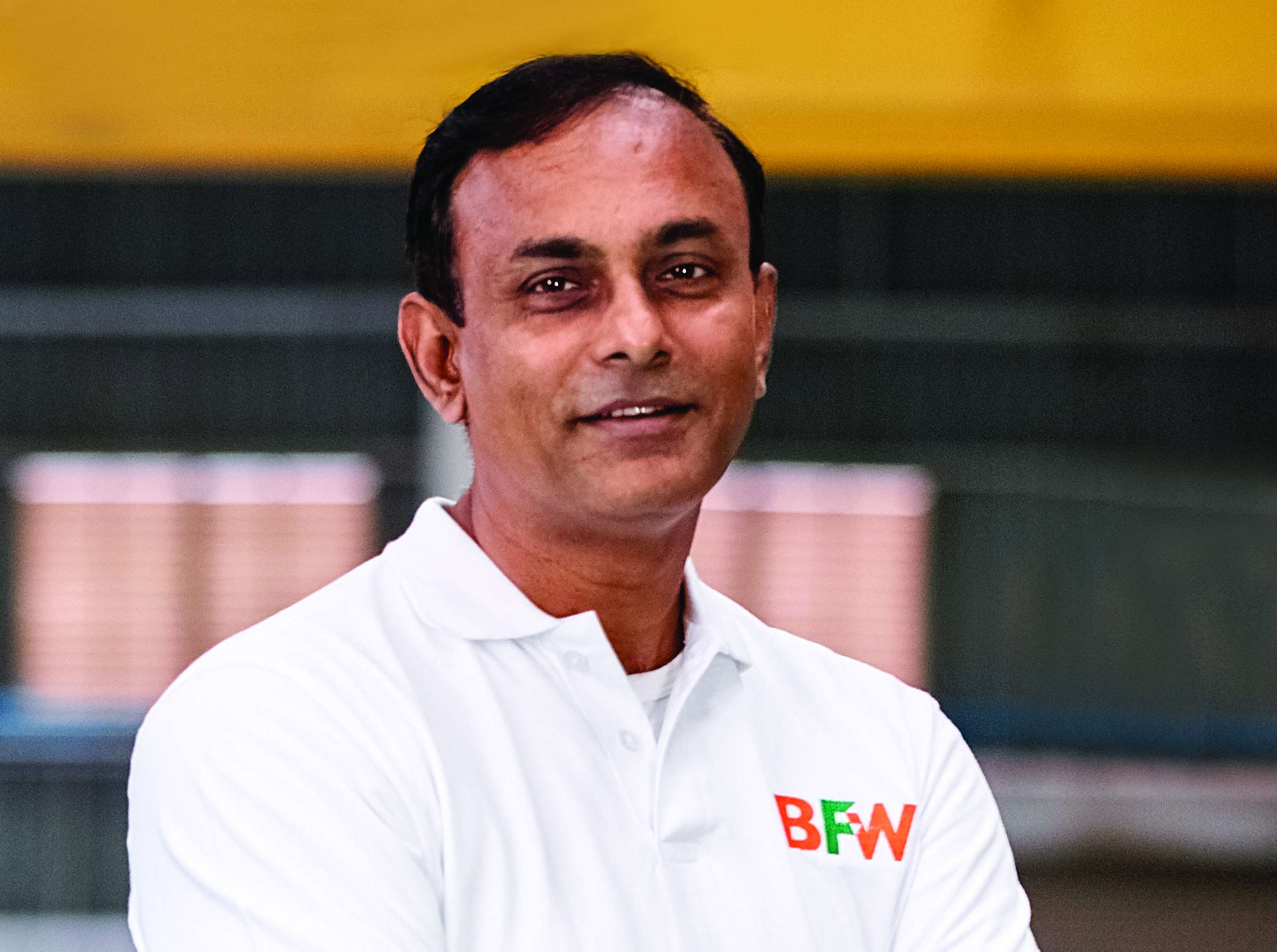Shaping productivity in die and mold

Shaping productivity in die and mold
Global employee-background-screening company First Advantage works with leading Indian entities for employee verification. Vivek Khanna, MD, First Advantage (India) outlines major verification trends and findings.
Headquartered in Atlanta, Georgia, USA, First Advantage provides background and employment screening to companies in 200-plus countries and territories worldwide. It is a global organization of more than 4,000 employees located across 26 offices in 14 countries. To give an idea of its scale of operations, First Advantage executed approximately 55 million screens in 2017. First Advantage has its own global infrastructure – including a data center in Amsterdam – and does not outsource this business-critical function to third party vendors. DMI spoke with Vivek Khanna, Managing Director, First Advantage (India) about the major trends that his company sees in India’s companies, particularly in the manufacturing sector, what the companies look for in candidates, and how our social-media behavior could impact our career. Edited excerpts.

Could you give me a quick background of First Advantage?
First Advantage is a leading company in the space of background screening. We do the screening of candidates for companies all over the world. We have direct presence in all the major countries in North America, Europe, Middle East, Asia, and Africa. Therefore we are truly globally local and locally global, if I may use the good old phrase. There are three things that we take a lot of pride in: the first is that our customer retention is very high, as high as 98 – 99 percent. Secondly, we are very strong on compliance-related technology and in-depth screening. Third, we specialize in leadership screening and work with a lot of companies for the purpose. As you know, screenings for recruitments at the leadership level have a different set of criteria that include attributes like reputation, which are very important for the stakeholders and the board. We define lot of best practices in this space. Our company is headquartered in Atlanta, is one of the largest hubs for the recruitment-screening business worldwide.
What are the main industries that you serve?
We serve all the industries ranging from financial services to retail, manufacturing, to IT, ITES, and the start-ups. The full spectrum.
Any particular trends that you see in the Indian manufacturing sector, in terms of background checks and the quality of candidates?
In the Indian manufacturing sector, the established players place a lot of importance on background screening for senior-level placements. Secondly, there are a lot of people at the entry-level who have taken training and certification at vocational training institutes – most of these institutes are accredited and registered, but some are not. We are among the few players in India who have the reach and the method to screen vocational-training backgrounds of candidates. As companies become more competitive, more and more of manufacturing companies have started to request for background screening. At the moment, the smaller firms such as the MSMEs believe that they can handpick people who are local to their area, without proper screening. But we find that it is important to verify the backgrounds of people even if they are hired locally. Today, more than 80 percent of people in India are mobile, that is, move across cities for work. So it is important for companies to verify all the employees, local or not.
I find it surprising that in today’s day and age when most professionals have online profiles on LinkedIn and other social media sites, how is it that more and more companies are requesting background checks?
Social media is a very interesting platform to understand from the screening perspective. An individual’s social-media behavior including his likes and dislikes and preferences say a lot about that individual. Having said that, social media also gives an individual enough independence to say whatever he or she wants to project, how he or she may define his or her profile in a certain way. When an individual goes on LinkedIn or Twitter and says I am a PhD from Harvard, nobody checks it, right? We do have a team for social media screening, which analyses the social-media behavior and profiles, especially for organizations that put emphasis on screening for reputational risks.

Say I am a manufacturing company head; in what situation should I approach a company like a First Advantage and what are the benefits that I will get out of the collaboration?
Any company of any size is a customer for us. For large companies we have our own segmentation for different levels of seniority, because risks are different at different levels. We also help companies with analytics and data mining to help them find attributes such as: what kind of people contribute to employee turnovers, do companies have a cyclic turnover, that is, do they show an identifiable pattern? For example, companies that hire in March have higher attrition rates. Analytics can reveal such interesting facts and then integrate that data with the company’s talent acquisition tools. We integrate such tools with technologies like Artificial Intelligence, Machine Learning and Blockchain to process and predict employee recruitment behavior and trends.
First Advantage’s latest Trends Report for April – June 2018 quantifies the trends of applicant fraud, called discrepancies, in India across sectors. Could you share with us your findings for the manufacturing sector in particular?
For the manufacturing sector, we have found that the percentage of discrepancies is about 4 percent, which means that of all the cases we screen, about 4 percent of background profiles are discrepant. The primary areas where we see discrepancies are educational qualifications, addresses, work and experience. For example, a candidate may list an ITI certification for a certain area of technical work, but that is found to be incorrect or non-existent. Or the applicant may say that he or she used to work at a certain location for a certain employer, and that would turn out to be untrue. Finally a big area of risk that the manufacturing companies are concerned about is the screening for criminal record or activity of a candidate particularly at the bottom rung where laborers are hired on contract for temporary jobs.
From the perspective of a job applicant, what are the precautions or the right steps that I should take to present a true, favorable picture to my potential recruiters?
It goes without saying that you must not lie on your resume. For example, you must not or misrepresent your gap years in your resume – unlike in the past, recruiters today understand that people can take long breaks from work to learn or experience new things and companies can close down. Recruiters appreciate honesty. Also, recruiters hire for attitude, therefore no matter how skilled or experienced you are, lying about anything would be an absolute deal-breaker. Thirdly, organizations and screeners tend to look at your social media profiles so it’s worthwhile not to be too loud on social media.
As Indians, we are politically very argumentative and vocal. Do companies look at your views on social media for as part of recruitment or promotion policy?
Most of the companies have a social media policy which outlines what should or shouldn’t be conveyed via social media. Also, companies track their brand visibility across social media platforms, so the moment I say I work for a certain company, and write, say, something funny, the concerned company’s brand will be impacted and so could be your career prospects.
Executive Profile
VIVEK KHANNA
Managing Director,
First Advantage, India Region
Vivek Khanna is the Managing Director for the India Region, responsible for India Commercial, India Operations and Global Operating Center. Vivek brings 23 years of proven expertise in Customer and Employee Experience Strategy & Deployment, Building Services, Transformation & Efficient Service Delivery and Growth gained across multiple geographies and industry domains. Before joining First Advantage, he was Senior Vice President and Head of Emerging Geographies at MphasiS, an HP Company, where he led a team of over 10,000 people. Prior to that, he was the Senior Director and Global Head for Continuous Improvement for a $1.1-billion business at Convergys, GM – Strategic Marketing at Lotus Management LLC in the US and a Consultant with Ernst & Young, UK.
On the personal front, Vivek is glad to have taken a three-year sabbatical to teach in a school in the Himalayas and work with the farming communities in Vidharbh Region to promote natural and organic agriculture methods. Vivek earned his Masters in Industrial Management from Indian Institute of Technology, Bombay and holds a Bachelor’s Degree in Metallurgical Engineering from National Institute of Technology, Rourkela.





